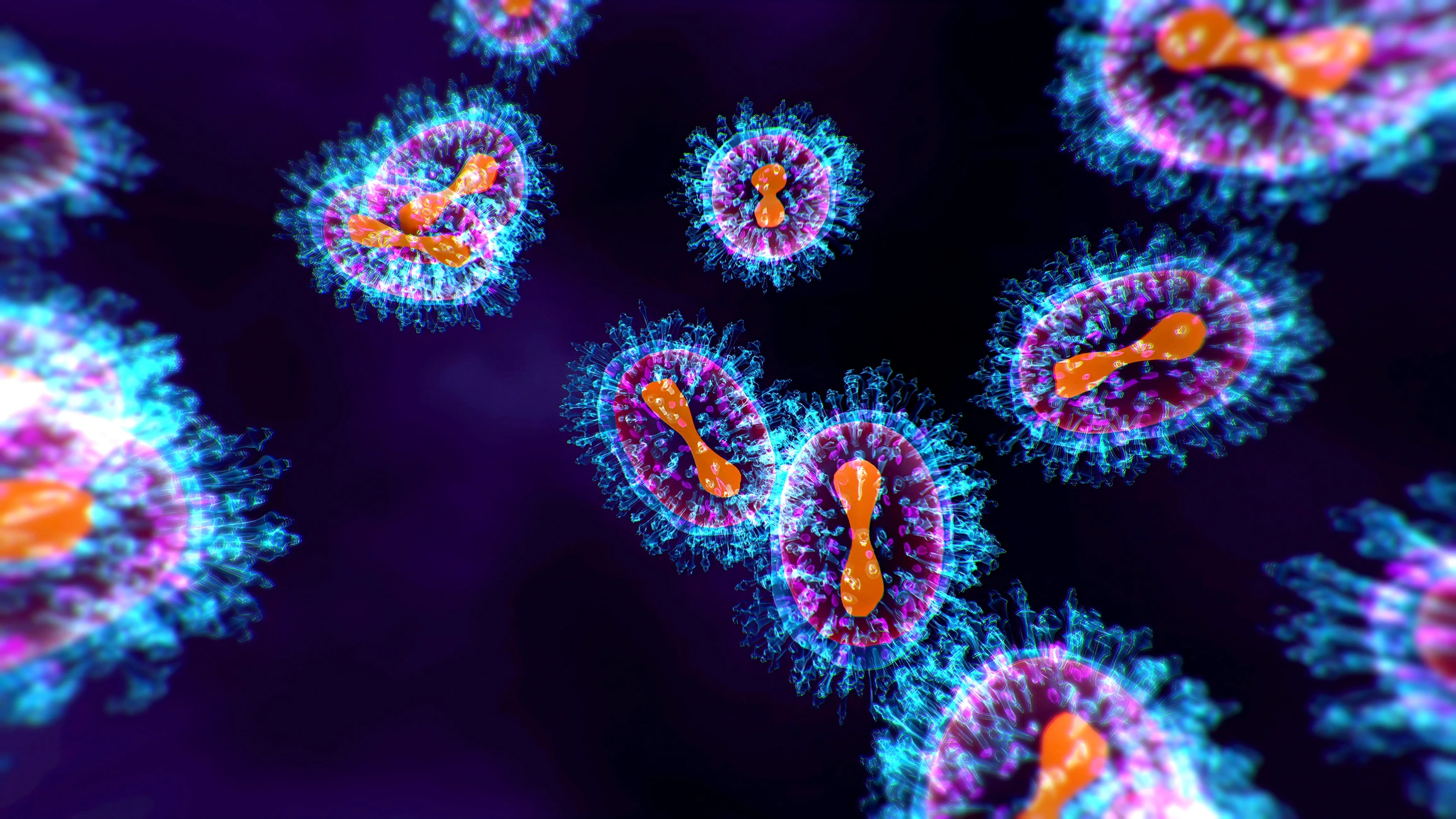EIT Graduate Research Areas
EIT supports doctoral research aligned with its programs, in partnership with the University of Oxford. The application form is now open; strong candidates with interests connected to one or more of the below themes are encouraged to submit an outline proposal via the form. Successful applicants will then have the opportunity to co-create a DPhil/PhD project proposal with both University of Oxford supervisors and EIT supervisors. Scholarship finalists will also be required to submit an application to the appropriate University department via their standard graduate admissions process; an offer of funding from EIT does not guarantee admission by the University. While this page currently lists graduate funding opportunities, we are also keen to hear from talented researchers at postdoctoral and senior levels who could contribute to these projects. Some current opportunities are advertised on our staff vacancies page and we also operate an expression of interest form for those wishing to be considered for future roles.
Our mission is to harness state-of-the-art statistical machine learning to accelerate impact in EIT’s programs and develop novel AI and Robotics approaches that lead to real-world breakthrough impact. We’re combining foundation models with the latest robotic hardware to drive high-speed, AI-guided experiments to help shorten the research cycle from idea to result. We collaborate across disciplines and borders, building tools, systems and programs that harness the immense powers of rigorous minds and data technology to create a better future. This connectivity between stakeholders and sectors supercharges outcomes.
We are building a world-class AI team across seven synergistic pillars: AI Research, ML Applied, Data Engineering, Infrastructure, AI Talent & Engagement, AI Operations, Robotics Research.
Strong candidates are encouraged to submit initial ideas for potential DPhil projects, it may be helpful to note that the following are areas of focus for the AIR team:
- Building machine learning interatomic potentials (MLIP)-powered simulations for large-scale biomolecular systems by developing multiscale capabilities, novel training methods and faster sampling algorithms
- Unlocking the next-generation of multimodal foundation models and agents across text, imaging, molecular and healthcare data to accelerate Science discovery
- Combining the power of large language models and scientific domain tools to design end-to-end scientific solutions for experimental design
- Develop foundational methods for causal understanding and training of foundation models testing
Oxford University supervisors for projects in this area are likely to be found in, but not limited to, one of the following departments: Statistics; Computer Science; Engineering Science; or the Mathematical Institute. In addition to EIT's graduate scholarship funding for DPhil research in this area, EIT also funds the Fundamentals of Artificial Intelligence Centre for Doctoral Training (CDT) which is managed by the University of Oxford. To find out more about this programme, visit the course page here.
EIT possess a large economics team aimed at tackling issues around how society and the economy will adapt to AI and Robotics and longer lives. It provides a first rate research environment, a team environment and access to world leading experts in these areas. As well as these research strengths the team has high level access to global policy makers and corporations around the world. The consequence is an end to end research agenda driving from fundamental research through to policies and products and their implementation.
The Economics Group welcomes applications from students interested in pursuing a DPhil in one of the following topics:
The Economic Consequences of AI and Robotics
Rapid technological change in AI and Robotics is likely to have significant impact on a range of economic variables – from GDP and productivity through to employment, inequality and public finances. The aim of this work is to develop theoretical and empirical models to understand this impact, identify and calibrate the mechanisms at work, determine how different forms of technological change have different impacts and what are the optimal policy responses.
The Macroeconomics of Longevity and Ageing
How economies adapt to changes in the age structure of the population, increased life expectancy and declining fertility will be key in the decades ahead. Increases in life expectancy will change a host of decisions around human capital – including health and education. They will also change attitudes towards risk seeking and demand changes in organizational structure. Just as technological progress has important and rich implications for macroeconomic models so too does longevity. Creating tractable analytical models that identify the mechanisms through which longevity and ageing impact the economy and how policies can adapt to longer lives to achieve better social and economic outcomes is of first order economic importance.
Empirical Modelling of Health, Ageing and their Economic Consequences
Health is central to individual wellbeing, economic productivity, and the sustainability of public institutions. Yet we still lack a concise, interpretable measure of health that captures both its biological and economic dimensions. Understanding how health evolves and how it impacts economic outcomes, as well as how economic outcomes shape health, is increasingly important in the context of an ageing society. With large scale administrative data increasingly available a promising research agenda is to consider variations in health and ageing and their determinants so as better to understand the returns to better health and how best to allocate health resources.
Oxford University supervisors for projects in this area are likely to be found in, but not limited to, the Economics department.
The Pathogen Project has several opportunities available for clinical and non-clinical candidates across the following areas:
- Characterising the genetic determinants of antimicrobial resistance
- Computational analysis of pathogen genomic diversity
- Assays for metagenomic sequencing from human and other samples
- Device engineering for automation and miniaturisation
To counter the growing global threat from infectious disease and antimicrobial resistance the Pathogen Project at EIT is building devices and analysis systems that enable metagenomic analysis to support diagnosis, treatment decisions and prevention across a wide variety of clinical and related applications using frontier approaches such as metagenomics, federated data infrastructures, and AI.
Some Project examples:
- To develop new computational tools for representing genomic and functional diversity across a broad range of pathogens to enable rapid interpretation of reads from metagenomic devices.
- To discover the genetic determinants and architecture of antimicrobial resistance across taxa that have been poorly studied to date.
- To investigate new avenues for improving the sensitivity, accuracy, and robustness of assays for isolating genomic material from pathogens in diverse sample types.
- To explore innovative engineering solutions for automating and miniaturising complex molecular biology procedures in the preparation and nanopore sequencing of samples.
In this interdisciplinary programme there are opportunities for DPhil students from a range of disciplines including those with a clinical background, scientists with training in microbiology, genetics, epidemiology and biological sciences as well as applicants with highly developed quantitative analytical skills, including computer science, statistics and machine learning with interest in applications to infectious disease.
Oxford University supervisors for projects in this area are likely to be found in, but not limited to, departments within the Medical Sciences Division.
The vision of the Generative Biology Institute (GBI) is to lay the foundations for engineering biology and unlock its potential for good. To achieve this, we must overcome two key challenges. First, we need the ability to write in the natural language of biology, enabling the rapid and scalable synthesis of entire genomes with precision. Second, we must understand what to write in DNA, determining which DNA sequences will generate biological systems that perform the desired functions. Addressing these challenges will allow us to harness the full power of biology to create transformative solutions across health, agriculture, clean energy and more. GBI is focused on solving the two critical challenges in making biology engineerable and applying the solutions to addressing the global challenges encapsulated in EIT’s humane endeavours.
Oxford University supervisors for projects in this area are likely to be found in, but not limited to, departments within the Mathematical, Physical & Life Sciences Division, including Chemistry; or departments from within the Medical Sciences Division.
In partnership with the University of Oxford, the Correlates of Immunity (COI)-AI program has several opportunities available for clinical and non-clinical candidates across the following areas:
- Developing novel human challenge models
- Analytical immunology (including mucosal immunity)
- Microbiology
- Computational biology / AI to uncover immune correlates of protection.
COI-AI focuses on tacking bacterial diseases that are a top cause of global mortality, for which traditional vaccine development approaches have failed, including S. aureus, E. coli (ExPEC), Group A strep, gonococcus and pneumococcus.
Some project examples:
- To determine the nature of protective immunity against major human pathogens such as Streptococcus pneumoniae and Staphylococcus aureus, using human challenge studies and vaccines to identify the immune responses, including immunity at the mucosa, that reduce the risk of infection.
- To leverage the latest advances in AI and causal inference (e.g. generative AI, foundation and / or causal inference models) using rich multi-dimensional data (including new experimental medicine studies) to understand human immune response to infection and vaccination.
In this interdisciplinary programme there are opportunities for DPhil students from a range of disciplines including those with a clinical background, scientists with training in immunology or microbiology, as well as applicants with highly developed quantitative analytical skills, including computer science, statistics and machine learning with interest in immunology and clinical applications.
Oxford University supervisors for projects in this area are likely to be found in, but not limited to, one of the following departments: Statistics; Computer Science; the Mathematical Institute; or departments within the Medical Sciences Division. This research program is taking place at the University of Oxford, led by Professor Sir Andrew Pollard and Professor Daniela Ferreira.
As our demands on our global food system continue to grow, the Plant Biology Institute is driving research to produce more food with less land and fewer resources. The green revolution in the 20th century radically increased food production, enabled by new technologies, fertilisers and knowledge. Since then, improvements in productivity have not kept pace with the dramatic increase in demand of our food system. To feed a growing population and support better health outcomes, we need a second green revolution. We aim to deliver this revolution by developing impactful and commercially sustainable solutions for improving global food production and planetary health through pioneering plant science research.
Our areas of exploration include:
- Improve plant productivity through genetic innovation, for example by modifying pathways involved in controlling growth or resource allocation.
- Reduced reliance on external inputs, for example by engineering biological nitrogen fixation directly into plants.
- Novel decarbonised plant cell-based production platforms for food and medicines, for example by advancing plant cell-based electro-agriculture.
- Advanced technologies that speed up discovery and deployment in plants, for example through novel transformation pipelines and AI-driven phenotyping for rapid trait analysis.
DPhil students will work in a collaborative, interdisciplinary environment with access to state-of-the-art laboratory and plant growth facilities, and expertise across the EIT ecosystem.
We invite applications from individuals who are excited to tackle real-world challenges in agriculture through innovative science.
Oxford University supervisors for projects in this area are likely to be found in, but not limited to, one of the following departments: Biology; Chemistry; Statistics; Computer Science; Engineering Science or the Mathematical Institute.
The Materials & Devices for Life Sciences (MDLS) program at EIT is focused on developing nanopore technologies to transform clinical and personal diagnostics, advancing the scalable development of personalised therapeutics through the exploration of synthetic tissue-like materials and living tissues prepared by 3D printing, and creating powerful new devices that support tissue engineering or in-field deployment of sensing technologies.
MDLS has opportunities for DPhil candidates in the following areas:
- Nanopore technologies for small-molecule diagnostics
- Single-molecule technologies for biopolymer (e.g., polypeptides, glycans) analysis
- Programmable membrane proteins for nanoscale transport and sensing
- Precision biomolecule processing for single-molecule technologies
- 3D tissue engineering with stem cells
- Synthetic and hybrid tissue engineering
- Versatile nanopore devices for sensing, sequencing, and beyond
- Devices for advanced tissue engineering
We welcome candidates from a broad range of scientific backgrounds, including chemistry, biochemistry, biology, materials science, physics, and engineering. Our research spans fundamental science through to clinical applications and devices. The program is technique-agnostic, embracing the latest experimental and computational approaches to address key challenges in the life sciences.
Oxford University supervisors for projects in this area are likely to be found in, but not limited to, one of the following departments: Biology; Chemistry; Biochemistry; Materials; Engineering Science; or Physics.






